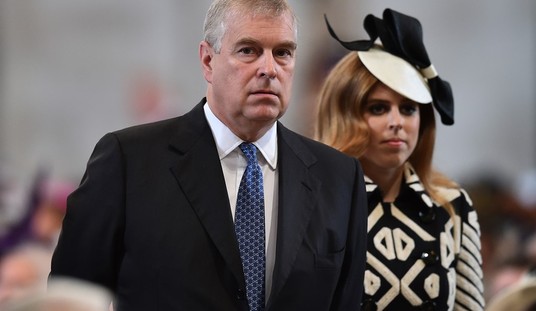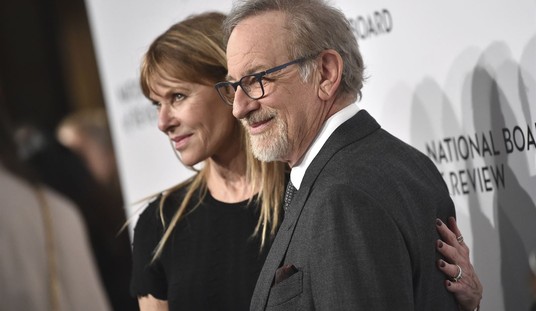Spoiler: Almost certainly not, although this isn’t anywhere close to the insanity that Sidney Powell keeps promising. A new lawsuit in Wisconsin seeks to throw out 156,807 votes based on alleged violations of Wisconsin statues and the Constitution, using numbers mainly based on estimates from a data “expert.” If the lawsuit succeeds, it could throw Wisconsin’s election back to Donald Trump, given how heavily absentee ballots went to Joe Biden.
Theoretically, anyway. In reality, this is a re-run of a previously dismissed case in federal court, and a rehash of the failed arguments in Pennsylvania:
As Trump mulls using the recount to launch a lawsuit, the group of voters asked the state Supreme Court to bar the Wisconsin Elections Commission from certifying the state’s results. The Wisconsin Voters Alliance wants the court to allow lawmakers to decide how to cast the state’s electoral votes instead.
In September, the group sued in federal court over $6.3 million in grants the Center for Tech and Civic Life gave to Milwaukee, Madison, Green Bay, Racine and Kenosha to help them run their elections. The center is funded by $350 million from Facebook founder Mark Zuckerberg and his wife, Priscilla Chan.
The group contended the heavily Democratic cities didn’t have the authority to spend that money, but U.S. District Judge William Griesbach ruled against them in October. An appeals court ruled against the group as well.
On Tuesday, the group took its arguments to the state Supreme Court, where conservatives hold a 4-3 majority.
The Trump campaign isn’t a party to this lawsuit, and neither is its legal team. Instead, this comes from a Minneapolis law firm and the Thomas More Society, which normally focuses on religious liberty and right-to-life cases. They aren’t usually given to flights of fancy either, so their entry into the election-challenge industry is notable.
Their complaint is equally interesting, even if somewhat unconvincing. The Zuckerberg/CTCL angle is one of the arguments made in the lawsuit, which argues through several theories to get to its 156K number. The suit insists that private money can’t be accepted for election funding as per the Elections Clause of the Constitution, as well as state laws. The federal court found no merit in this argument the first time around, and the Elections Clause makes no mention at all of funding for election operations, not even implicitly. All it does is establish that the states have the right to pass laws regarding election operations for federal offices, but that Congress still has the ultimate authority over them.
If Wisconsin law has an explicit bar on such private-sector assistance, that might matter in state court. However, the courts are much more likely to sanction the cities that took the money rather than sanction voters by tossing out their ballots, a move all-but-exclusively reserved for established voter misbehavior. Courts are extremely loathe to punish voters for the misbehavior of public officials. (Taxes are bad enough … I kid, I kid.)
The best argument they have, legally and numerically, is that Wisconsin disregarded voter-ID requirements by allowing voters to abuse the “indefinitely confined” exception to it. For this, the plaintiffs have a firm-ish number of 96,437 ballots. They are arguing that Wisconsin didn’t adhere to the legislature’s intent to limit this exception to only the truly invalid, but that argument is going to run up against a COVID-19 pandemic reality. Government has been mandating lockdowns and isolation in areas of Wisconsin under some circumstances, and even apart from that people are avoiding public places to help contain the spread. The state made it clear it would take a relaxed view of this exception under the unusual circumstances involved.
Plus, given that this represents slightly under 3% of all ballots cast, it’s going to be tough to say this represents an exceptional number under the circumstances. This same problem attaches to other pandemic-related claims in the lawsuit, such as a failure to enforce witness requirements on absentee ballots and the extra-statutory use of drop boxes for ballots, partly funded through the CTLC. This was an extraordinary set of circumstances, and courts will recognize that in dealing with these complaints.
Another problem in the lawsuit are the numbers themselves. With the possible exception of the “indefinitely confined” category, none of these appear based on clear and direct evidence. Instead, they are supplied by the plaintiffs’ data “expert” Matthew Braynard. They are estimates based off of data analytics, not actual counts. That didn’t prove convincing in Pennsylvania when the Trump campaign tried to use Braynard’s estimates as evidence, and it’s extremely unlikely that courts will accept outsider guesswork as evidentiary support.
And who is Braynard? He’s a MAGA alum working with the Trump campaign:
The Voter Integrity Fund that Sandoval now works for “is analyzing ballot data and cold-calling voters in an attempt to substantiate the president’s outlandish claims about illicit voting,” The Washington Post wrote. The group is led by Matthew Braynard, a data specialist on Trump’s 2016 campaign, who told the Post that several other government officials also took leave to work on the effort to find election fraud. One of them is Thomas Baptiste, an adviser in the Interior Department. The group has raised over $640,000 in donations.
“Braynard and Sandoval claim that they have found evidence of possible fraud, but they have yet to make any detailed findings public,” the Post wrote. According to The Philadelphia Inquirer, “Braynard said the group was formed independently of the Trump campaign, but that it is in frequent communication with it. He said they have provided the campaign and its team of lawyers with information on voters for their legal battles.”
And from the Washington Post last week:
Sandoval is part of a hastily convened team led by Matthew Braynard, a data specialist who worked on Trump’s 2016 campaign. Another participant is Thomas Baptiste, an adviser to the deputy secretary of the Interior Department who also took a leave to work on the project.
Braynard said in an interview that several other government officials on leave are also assisting the effort, but he declined to identify them.
The group is analyzing voter rolls and other databases in search of signs that ballots may have been cast illegally, information that Braynard said is being shared with Trump’s campaign. The Trump campaign did not respond to a request for comment.
It’s certainly an interesting effort, and it’s not a nutty conspiracy theory involving a Hugo Chavez/Brian Kemp partnership, but that’s a veeeerrrrry low bar. Courts have a higher bar for evidentiary support than that, and than this. Don’t expect this rerun to get picked up for a new season.
Update: The Amistad Project is filing an identical lawsuit in Georgia, according to a press release sent out this afternoon. It’s got an identical chance of changing anything.








Join the conversation as a VIP Member